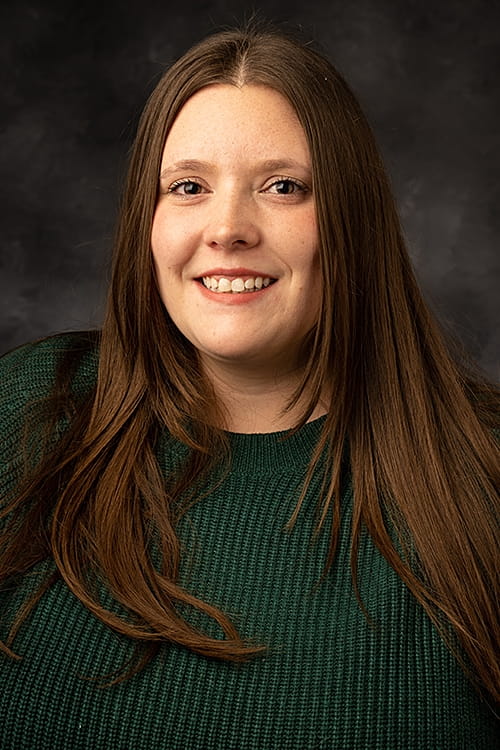
Jordan Johnson, PhD student, immunology
Unlocks how immune cells protect
“My expectations for my trainees are enormously high. Jordan’s expectations of herself (and me) are equally high. These qualities and her unwavering determination are precisely why I was so thrilled that Jordan elected to join my lab at Iowa, and why I know for certain that Jordan Johnson is an exceptional candidate for the Dare to Discover Campaign.” -Noah Butler, associate professor, microbiology and immunology
Hometown: Waxahachie, Texas
Faculty mentor/advisor: Noah Butler, PhD, Mark Stinski Professorship in Immunology, associate professor, microbiology and immunology, Carver College of Medicine
What is your degree program and expected graduate date? Immunology graduate program. I expect to receive my PhD in 2023.
Please describe your research: My research broadly aims to address the key factors and pathways that orchestrate an optimal response of CD4 T cells, a white blood cell that helps trigger the body’s response to infection. My graduate work is specifically focused on understanding the role that nongenetic regulators play in programming CD4 T cell differentiation and function.
In simple terms, why does this research matter? CD4 T cells play critical, diverse roles in the immune system by providing help with pathogen control and priming the humoral immune response, in which the body creates antibodies to fight viruses and bacteria. As we better define and understand the key networks and pathways that govern the optimal programming and function of CD4 T cells, we can use this knowledge to design more effective vaccination and therapeutic strategies.
How soon after starting at the University of Iowa were you able to participate in research? Within one week of being on campus, I was able to jump right into research during my first of three laboratory rotations.
How has being involved in research made you more successful at the University of Iowa? Being involved in research at the University of Iowa has provided me with so many opportunities to develop and strengthen my skills as a scientist. Research has helped me cement the concepts that I learned in a classroom setting by being able to ask questions and work towards answering them with my own hands. Additionally, I have learned the importance and value of networking and collaboration which will be so important as I move forward in my career.
What are your career goals and/or plans after graduation? After completing my degree, I will seek a postdoctoral position to pursue a research-focused academic faculty position.
Banner location: not on display—
